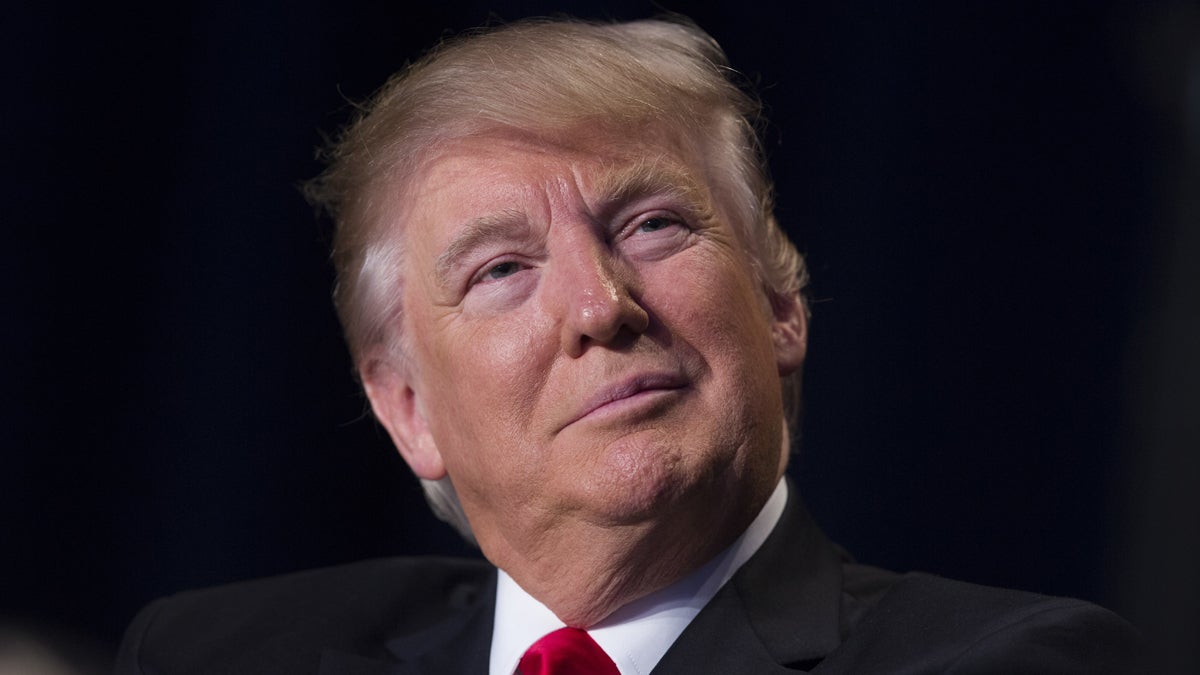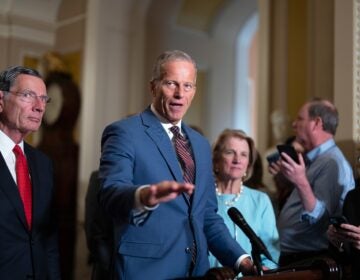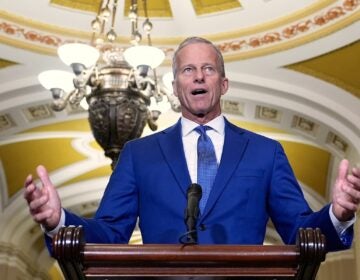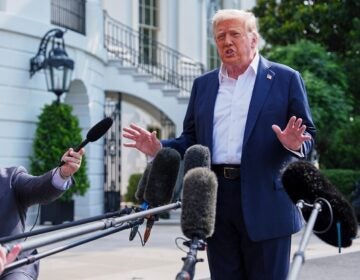Want to preserve religious freedom? Preserve the line between church and state.

In this Feb. 2, 2017, photo, President Donald Trump listens as he is introduced during the National Prayer Breakfast in Washington. (AP Photo/Evan Vucci, file)
For the last 63 years, the Johnson Amendment has ensured that worshipping communities and other charities are non-partisan sanctuaries. In the executive order President Trump signed earlier this month, he is messing with the separation of church and state by easing Johnson Amendment restrictions, making it easier for faith institutions to participate in politics.
At February’s National Prayer Breakfast, Trump vowed to, “get rid of and totally destroy the Johnson Amendment.” As a seminarian and a lifelong member of a Mainline Protestant denomination, I say an unequivocal ‘No!’ to weakening or eliminating the Amendment.
Drafted by then-Sen. Lyndon B. Johnson, D-Texas, and passed into law in 1943, The Johnson Amendment prohibits any nonprofit organization, 501 (c) (3), charity, foundation, university, and religious institution from endorsement or non-endorsement of a political candidate. The Amendment will deny tax-exempt status to “those who intervene in any political campaign on behalf of any candidate for any public office.” This separation allows nonprofits to operate without the avarice of political partisanship, and places of worship to maintain their theological integrity. The IRS makes a clear distinction between nonprofits and political organizations.
Our founding fathers, the wise drafters of our Constitution, endorsed the separation of church and state, viewing it as a positive and desirable effect. Thomas Jefferson advocated for religious liberty, and other framers argued against a national religion.
Although the United States may be based on Christian ideals, it was never designed to be a Christian nation but rather a country with a clear delineation between church and state. These demarcations let faith institutions do the work of faith institutions and keep them from offering pulpit endorsements, funneling funds to candidates, or becoming partisan super PACs.
Softening the Johnson Amendment parameters appeals to many on the religious right who see church and state separation as a restriction of religious freedom. However, the restriction is fair, as tax exemption is a public subsidy. Can taxes be seen as payment for political involvement, and do churches willingly abdicate this right with their tax-exempt status? From the standpoint of integrity, accepting the tax deal means standing with equal rights, as opposed to demanding special rights, as the churches do that want to engage in politics without paying taxes.
Because it is a part of the Internal Revenue Code, an act of Congress would be necessary to eliminate the Johnson Amendment, but weakening the Amendment has far-reaching consequences. The person sitting next to you in the pew could be putting money into the collection plate that would ultimately go toward supporting a candidate not of your own choosing. Tax-deductible church donations could turn churches into non-transparent campaign offices. The diverse political composition of your congregation could be honed to be only people who believe politically just as you do. A church or denomination could provide funding for advertising to endorse or oppose ballot issues. Politics could take precedence over ministry, over the pursuit of social justice, support for the social gospel, and engagement of advocacy around care for those in need. These social concerns are far removed from efforts of candidate endorsement and political campaign involvement. Faith institutions can support issues and policy, but not politicians and their campaigns. The last thing we want in our country is the ability to create a super PAC through local congregations to drive a political agenda item.
While stretching a church’s involvement into the political realm to include the endorsement of a particular candidate or even in raising money for the work of a political party is significant, what is more alarming is the idea of the government co-opting the church to promote its political agenda. We do not want a state church. We remember the takeover of the German church during World War II as a clear example of why a national church is a dangerous idea. One of the beautiful functions of a place of worship is its ability to speak truth to power. If the church becomes wrapped up in politics, it can easily lose sight of its mission priorities.
In the case of a Christian church, I see it as a place that says ‘yes’ to many things. We say yes to activism, yes to involvement, yes to worshiping and learning, yes to faithfulness, yes to journeying, yes to walking together and building relationships, yes to knowing the other, and yes to love. We take Jesus’ words seriously, to feed the hungry, give drink to the thirsty, welcome the stranger, clothe the naked, care for the sick and visit those in prison (Matthew 25:31-46). We embrace this social gospel at a time in the life of our country when caring for our neighbor, the marginalized, is needed more than ever, and the church can be a vehicle that transforms the way we do things.
The Johnson Amendment has worked well for 63 years to support faith institutions that want to say ‘Yes!’ to their calling, allowing congregations to speak out on issues of justice while staying above the political fray. The National Council of Churches said, “We affirm the role of the churches in proclaiming the power of God through Jesus Christ, preaching with a prophetic voice that both names God as the source of all salvation and holds the state accountable in the service of the common good.” Last week’s lectionary text from John tells us about the good shepherd and his sheep—like the sheep, we know who calls us and to whom we respond.
—
M. Courtenay Willcox is a member of Bryn Mawr Presbyterian Church and currently in a Master of Divinity program at Lutheran Theological Seminary Philadelphia.
WHYY is your source for fact-based, in-depth journalism and information. As a nonprofit organization, we rely on financial support from readers like you. Please give today.




